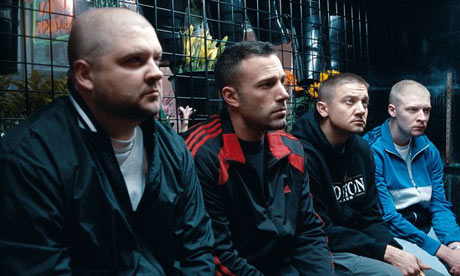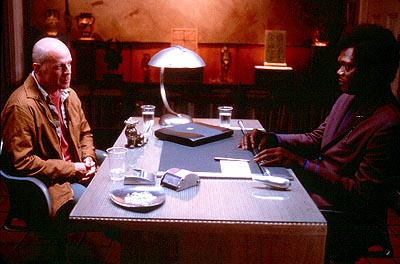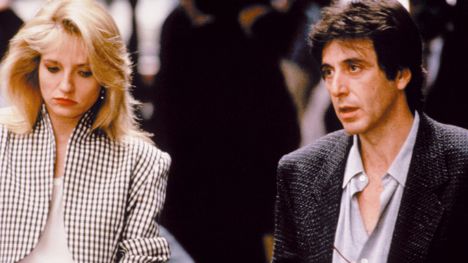 The couple in grief.
The couple in grief.Distressing emotions encapsulates "Rabbit Hole", a film adapted from a stage play about a couple dealing with the aftermath of their son's accidental death and its wheel boot-like effect to their ability to move on. Again, these are one of those films that, if handled carelessly, can easily drift into cheap melodrama. But "Rabbit Hole", with all its cinematic simplicity and believable performances delivered by Aaron Eckhart and Nicole Kidman (an actress very much used in playing emotionally incapacitated housewives), it has carried itself as a film dealing with realistic situational emotions rather than a dramatic show-off.
I am in no possible position to expound myself and mutter solutions about the couple's grief in the film. Yes, standing from afar, looking in as a pseudo-caring outsider, one can give out emotionally hollow words to console the sufferers just for the sake of giving in to the idea of helping out. But as the film portrayed all the pain of letting go in the center of a suburban landscape, it will take more than friends and some group therapies: One needs to do it within, swat away the personal demons, and emerge from the titular 'rabbit hole' of despair anew.
Symbolically, it seems easy and we may see married couples who have lost their child having a constant smile on their face. I'm not heading into pessimistic territories here, but I think those who wears weary smiles are the ones who haven't got out of the symbolic hole completely. They can easily be those who have mutually decided to just live a clockwork existence based on half-meant acceptance. It may sound harsh, they may look happy, they may have reclaimed possession of a vehicle towards a fresh beginning, but the wheel boots are still on and they're not moving any further. But then again, as I have told, I'm in no position to tell of solutions, just plain, instinctive speculations.
For some, "Rabbit Hole", although a very simple film, may be emotionally too much, but the film supplied its own consolation to husbands and wives with the same emotional condition: 'One must think of a parallel universe'. That somewhere, amidst the sadness in one, everything's right and ideal on the other. Illusion it maybe, but it's a start.
I am in no possible position to expound myself and mutter solutions about the couple's grief in the film. Yes, standing from afar, looking in as a pseudo-caring outsider, one can give out emotionally hollow words to console the sufferers just for the sake of giving in to the idea of helping out. But as the film portrayed all the pain of letting go in the center of a suburban landscape, it will take more than friends and some group therapies: One needs to do it within, swat away the personal demons, and emerge from the titular 'rabbit hole' of despair anew.
Symbolically, it seems easy and we may see married couples who have lost their child having a constant smile on their face. I'm not heading into pessimistic territories here, but I think those who wears weary smiles are the ones who haven't got out of the symbolic hole completely. They can easily be those who have mutually decided to just live a clockwork existence based on half-meant acceptance. It may sound harsh, they may look happy, they may have reclaimed possession of a vehicle towards a fresh beginning, but the wheel boots are still on and they're not moving any further. But then again, as I have told, I'm in no position to tell of solutions, just plain, instinctive speculations.
For some, "Rabbit Hole", although a very simple film, may be emotionally too much, but the film supplied its own consolation to husbands and wives with the same emotional condition: 'One must think of a parallel universe'. That somewhere, amidst the sadness in one, everything's right and ideal on the other. Illusion it maybe, but it's a start.
































